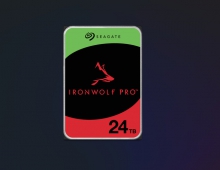
Tokyo Game Show 2004: PSP Unveiled, Game Titles for Nintendo DS Shown
The Computer Entertainment Suppliers' Association (CESA) opened its 14th games-related products exhibition, the Tokyo Game Show 2004,at Makuhari Messe, Nippon Convention Center, on September 24, 2004.
An unprecedented number of exhibitors -- 118 -- were in attendance this year, of which 18 were from overseas, from countries like Korea and China. The show attracted considerable attention with features such as a public demonstration of the PlayStation Portable (PSP) from Sony Computer Entertainment Inc, new game titles for the Nintendo DS from Nintendo Co, Ltd, as well as other highlights.
At a press conference held on the opening day, CESA chairman Kenzo Tsujimoto said: "We believe visitors can sense each exhibitor's enthusiasm for the show. Public interest in the show is likely to further increase since in particular, new game consoles are drawing attention this year. The exhibition will generate an air of excitement, with a lot of visitors continuing to come."
Speaking about the current situation in the Japanese game industry, Tsujimoto added: "Domestic sales volume of game titles is declining. However, along with the development of the game industry, related businesses -- excluding game software sales -- are growing. Hence, from a wider perspective, it cannot simply be said that the game industry is seeing sales drop." The business model for each company in the industry is changing, he said.
Tsujimoto pointed out, as reasons for the fall in sales of game software, (1) that makers have been required to change their game design concepts, and (2) that the issues concerning the distribution of game software, such as used titles and pirated software, are becoming increasingly serious. But he also said, "Most image processors used in pachinko and slot machines, for example, are developed in the game industry. As technologies evolve, technological streams run in a broad range of fields, regardless of the game industry's boundaries." He said that the game industry can grow in a broader sense, developing mobile phone games and network games, etc.
Tsujimoto believes the game industry's prospects in 2004-2005 are good: "New portable game consoles will be released in tandem toward 2005, with compatible package software releases following suit."
Crisis in Development
Speaking about the increasing range of tasks that need to be carried out in game software development, CESA vice chairman Hideki Sato said: "Performance of hardware is being enhanced in accordance with new game consoles. User requirements are becoming more diversified as well. Pressure on the development of new game titles is increasing amid such circumstances."
CESA annually holds the CESA Developers Conference (CEDEC), a technical seminar for game software developers, to provide technology information on game consoles and to show how new development tools are used. "We consider the rising number of CEDEC participants as evidence that game software developers feel a sense of crisis. CESA wants to alleviate the burden on developers and enable them to concentrate on production by offering information -- from game software production to marketing opportunities," said Sato.
Japan Can Regain Lost Ground
As far as Japanese game software makers are concerned, "Significant potential lies in the penetration of online games," said Komatsu. "Circumstances are changing even in areas such as China and Korea, where online games are popular through the second-generation online game market. As Japanese game software manufacturers are strong in technologies such as image processing and scenario formulation, we believe they can regain lost ground."
As for Chinese game software companies, "Their key products are online games," Komatsu said. "But game title makers cannot collect development costs due to the pirated copies that are infesting the market. This situation is weakening game software development power in China, as a result."
At a press conference held on the opening day, CESA chairman Kenzo Tsujimoto said: "We believe visitors can sense each exhibitor's enthusiasm for the show. Public interest in the show is likely to further increase since in particular, new game consoles are drawing attention this year. The exhibition will generate an air of excitement, with a lot of visitors continuing to come."
Speaking about the current situation in the Japanese game industry, Tsujimoto added: "Domestic sales volume of game titles is declining. However, along with the development of the game industry, related businesses -- excluding game software sales -- are growing. Hence, from a wider perspective, it cannot simply be said that the game industry is seeing sales drop." The business model for each company in the industry is changing, he said.
Tsujimoto pointed out, as reasons for the fall in sales of game software, (1) that makers have been required to change their game design concepts, and (2) that the issues concerning the distribution of game software, such as used titles and pirated software, are becoming increasingly serious. But he also said, "Most image processors used in pachinko and slot machines, for example, are developed in the game industry. As technologies evolve, technological streams run in a broad range of fields, regardless of the game industry's boundaries." He said that the game industry can grow in a broader sense, developing mobile phone games and network games, etc.
Tsujimoto believes the game industry's prospects in 2004-2005 are good: "New portable game consoles will be released in tandem toward 2005, with compatible package software releases following suit."
Crisis in Development
Speaking about the increasing range of tasks that need to be carried out in game software development, CESA vice chairman Hideki Sato said: "Performance of hardware is being enhanced in accordance with new game consoles. User requirements are becoming more diversified as well. Pressure on the development of new game titles is increasing amid such circumstances."
CESA annually holds the CESA Developers Conference (CEDEC), a technical seminar for game software developers, to provide technology information on game consoles and to show how new development tools are used. "We consider the rising number of CEDEC participants as evidence that game software developers feel a sense of crisis. CESA wants to alleviate the burden on developers and enable them to concentrate on production by offering information -- from game software production to marketing opportunities," said Sato.
Japan Can Regain Lost Ground
As far as Japanese game software makers are concerned, "Significant potential lies in the penetration of online games," said Komatsu. "Circumstances are changing even in areas such as China and Korea, where online games are popular through the second-generation online game market. As Japanese game software manufacturers are strong in technologies such as image processing and scenario formulation, we believe they can regain lost ground."
As for Chinese game software companies, "Their key products are online games," Komatsu said. "But game title makers cannot collect development costs due to the pirated copies that are infesting the market. This situation is weakening game software development power in China, as a result."





















